Terbay Services is one answer, a lovely-sounding one:
In 1969 the M6 was built through the Lune Gorge and over Shap summit, cutting across Orton Low Moor on John and Barbara Dunning’s farm.
When they learnt that the Department of Transport wished to build a motorway service area on the moor, these young farmers, recently married, boldly put in a bid for the lease to build and run it.
Tebay Services opened in 1972 on the northbound carriageway. We were the UK’s first family-run motorway service area, a friendly refuge sheltered behind a plantation of Scots Pines from the sound and fury of the motorway. We cooked simple good food in a 40-seat restaurant and kept a small shop selling locally sourced crafts alongside drivers’ essentials.
As you’ve been moving about Charlottetown this month you may have noticed new cycling-related street signs installed, marking dedicated bicycle lanes, areas where the road should be shared with bicycles, and the like.
My favourite of this new crop of signs are the “Bicycles May Use Full Lane” signs like this one on Richmond Street.
Many city streets aren’t wide enough to safely allow cars and trucks to pass bicycles, especially the very narrow streets downtown. My strategy has always been to ride such that they simply can’t pass, and while this keeps me safer, it also means I need to gird myself against the palpable “how dare you!?” actions is frustrated drivers: the engine-gunning, the creeping up almost close enough to touch my back wheel, the sudden acceleration when finally freed from my annoyance.
While these signs won’t prevent that, at least they give me official comfort that I’m in the right.
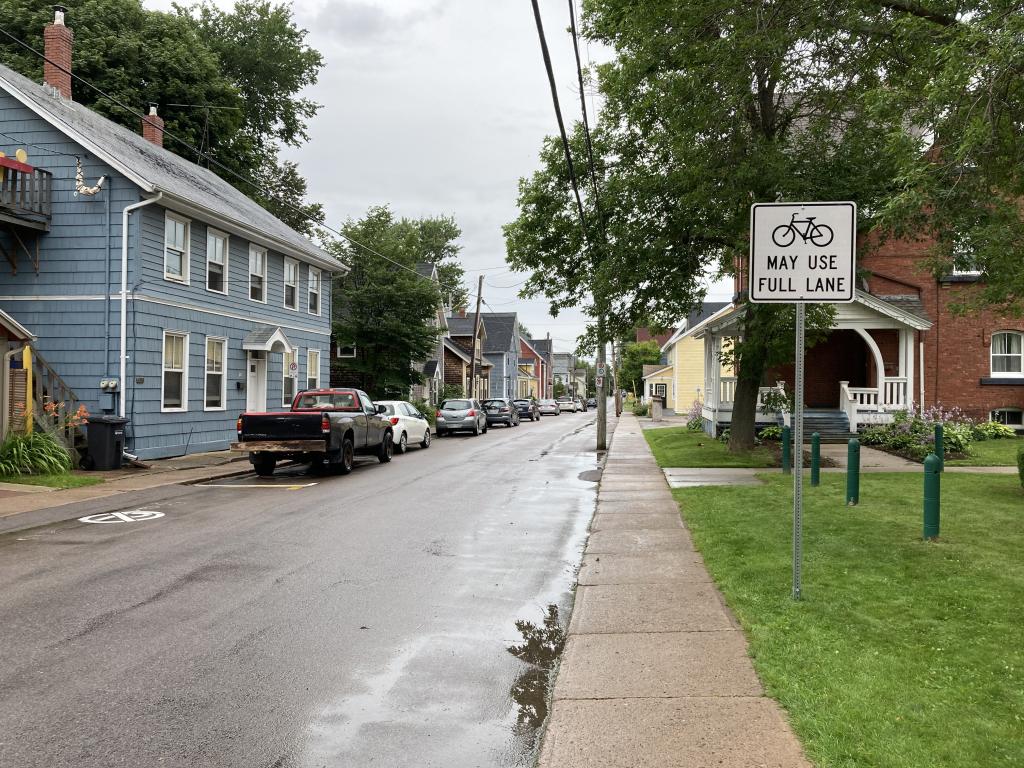
I’m pretty sure that Playdate, the brand new bright yellow game console from Portland’s Panic, is an inane frivolity, the kind of thing the world doesn’t really need.
But it certainly begat an interesting promotional audio documentary that’s worth a listen to learn about modern hardware and software engineering, and how it’s possible at a modest independent scale.
And perhaps that’s why Playdate is worthwhile: as a case study of a general approach we might use to, say, rebuild our energy and transportation systems.
Earlier this summer Grace Kimpinski, the Executive Director of Island Fringe, got in touch with an idea for a new award for this year’s edition of the festival, and asked if I’d be willing to sponsor it. I said yes immediately, and together Grace and I cooked up the name of the award and the spirit in which it will be awarded.
Longtime readers will recall that in October 1882 Oscar Wilde paid a visit to Charlottetown as part of his speaking tour of North America:
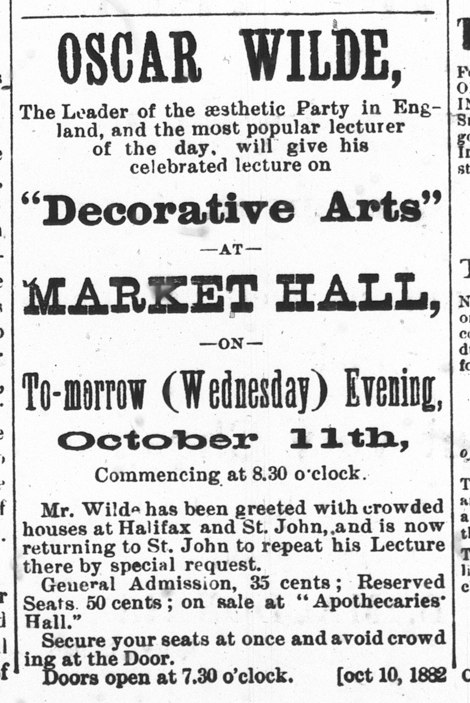
Since I first learned of that visit, from Catherine Hennessey, it has stuck in my head as something we should celebrate, if only because the very idea of Oscar Wilde in Charlottetown’s Market Hall, speaking about “Decorative Arts” is just too amazing a vision to not celebrate.
Wilde was just 28 years old when he visited; he died at 46, spending two of the years between imprisoned for being gay (a crime for which he was posthumously pardoned only in 2017).
It seemed only right, given that Island Fringe celebrates “boundary-pushing theatre and live performance,” that the award should be named in Wilde’s honour, and given out to the show that “most effectively celebrates non-conformity.”
Come to the closing party and awards night on August 1, 2021 at the Charlottetown Beer Garden at 8:00 p.m. to find out the show that is so-celebrated.
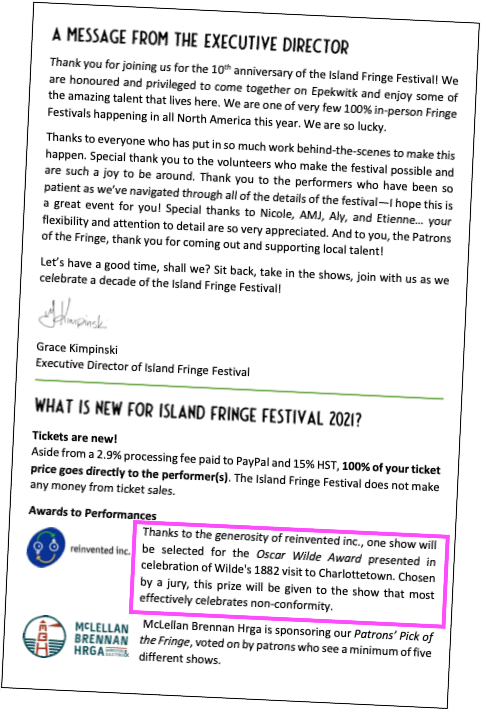
During my year at Trent University I took a course in “natural language understanding by computers” from Stephen Regoczei, a course that we conjured up as a reading course so as to free me from the shackles of needing to take Computer Studies 101. And a course that, in the end, was far more free-ranging than the title suggested.
One day Stephen held up an object and asked me to sketch it from his perspective. I failed: my brain simply didn’t have the horsepower to do such a complicated reprojection.
And the third dimension has continued to be my arch nemesis in the years since.
But I’m trying to overcome that, and sketching coffee cups is good practice. I’m nowhere near there yet, but I’m making some progress.
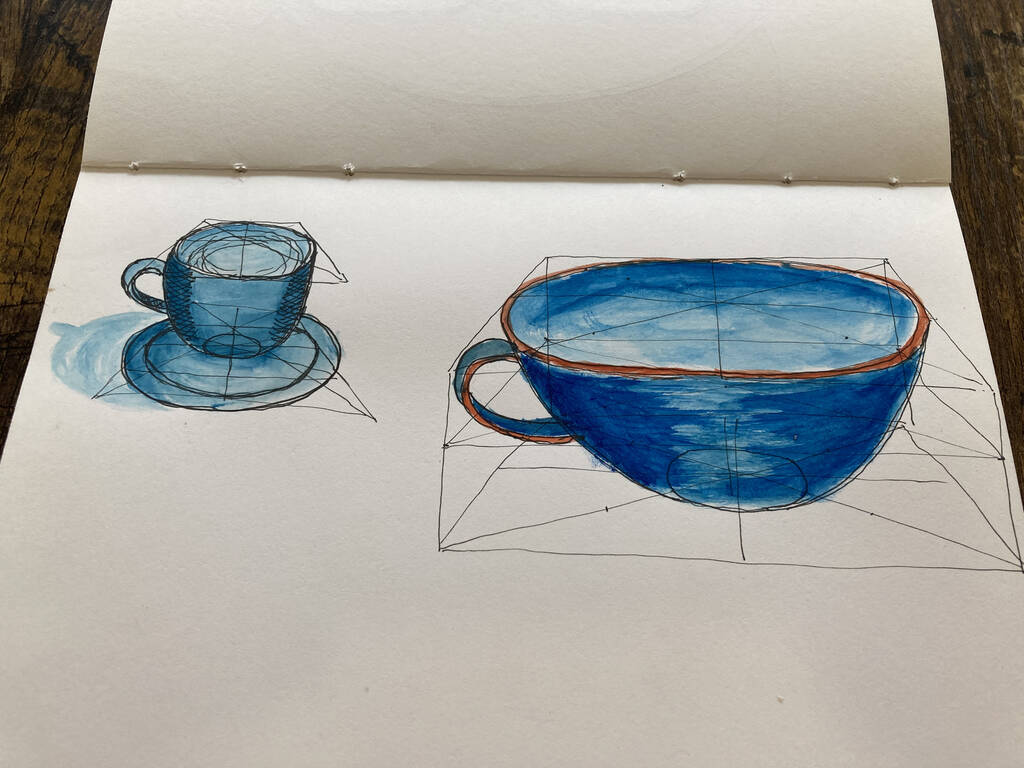
My friend Elmine blogs about her book purchases.
I’ve found that if Elmine is interested in a book, I’m also interested in it.
To the point where I’m thinking I should simply ask Dan at The Bookmark to subscribe to Elmine’s blog and order me a copy of anything she purchases.
For many years Donna Glass and her capable team have been running a kayak and paddleboard rental operation out of the riverside park in Morell; construction of a new bridge in Morell, with the resulting noise and chaos, has pushed them up the shore one watershed to a new base in Midgell.
Which turns out to be not such a bad thing: the Midgell River turns out to be just as nice a river to paddle on, and is perhaps even better for the new paddler, as it’s a little gentler and more compact (Kingfisher will still shuttle you up to the headwaters of the Morell River for their longstanding bridge-to-bridge paddle, which is a trip I recommend everyone do at least once).
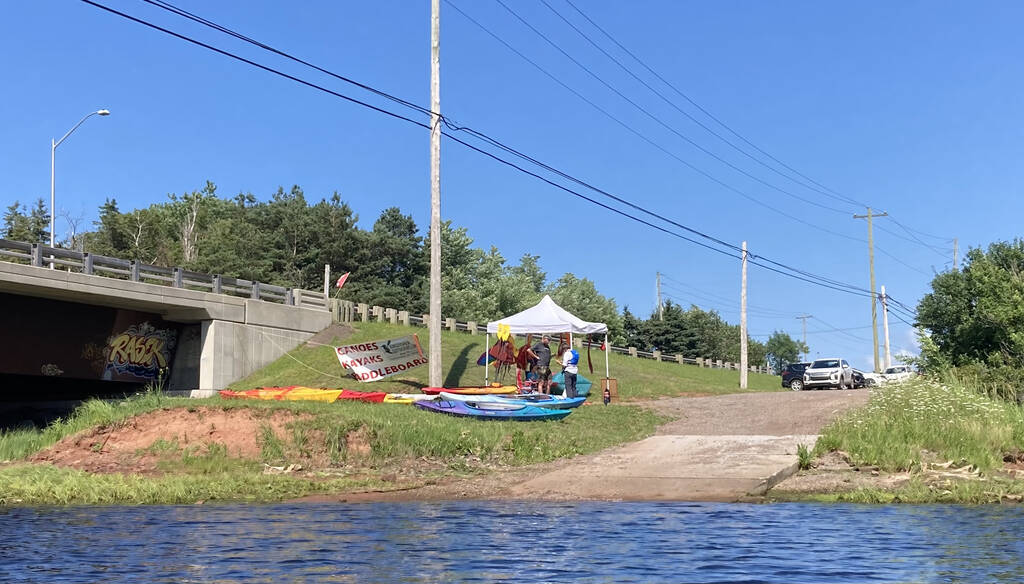
From Kingfisher’s base at the bridge over the river, you can paddle upriver, which quickly takes you from the noise of the highway around the bend into pleasant silence, or you can paddle downriver, under the Confederation Trail bridge and into St. Peters Bay, where you’ll find what we are told is a pleasant beach.
Olivia and I went out to Midgell yesterday afternoon–a warm, sunny, windless day–for the Pride Paddle, an event Kingfisher holds annually, with all proceeds going to Pride PEI and Peers Alliance. We’d booked a double kayak, and as we pulled into the parking lot it arrived back from its previous trip, so we were right on time.
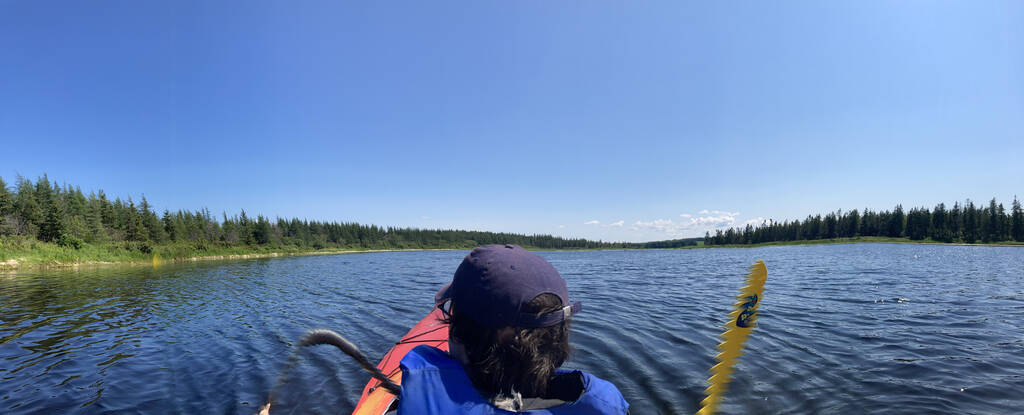
We were paddling at low tide, so ran aground heading downriver; we levered ourselves out and went upriver instead. Unlike previous trips, where Olivia was more passenger than paddler, she figured out the mechanics of paddling and did as much of the work moving us forward as I did.
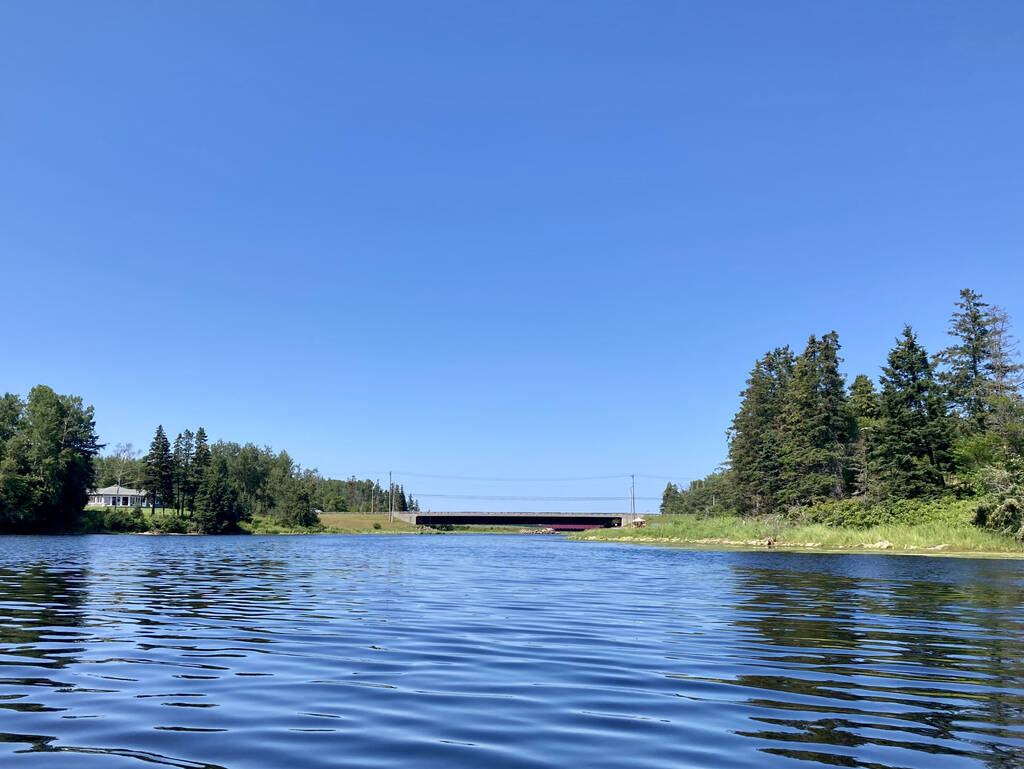
We were out on the water for about 90 minutes. It was a gentle, relaxing way to spend time on the water; it’s something that anyone can do, and especially if you’ve never explored the Island’s river systems from a kayak, I highly recommend you take advantage of the opportunity, especially this year when we’re all sticking closer to home.
From Be interested, be curious, hear what’s not said: how I learned to really listen to people by Annalisa Barbieri in The Guardian:
Listening, I discovered, wasn’t just about waiting for the other person to stop talking, or asking good questions, or even not interrupting. It was about really hearing what the other person was saying, and why they were saying it. Being interested, but also curious. Sometimes that means looking for what’s not said, what’s left out, which words are used to mask emotions that are hard to acknowledge. Likewise, good listening is about approaching what has been said as if you’ve never heard it before. Put simply, it’s about paying attention.
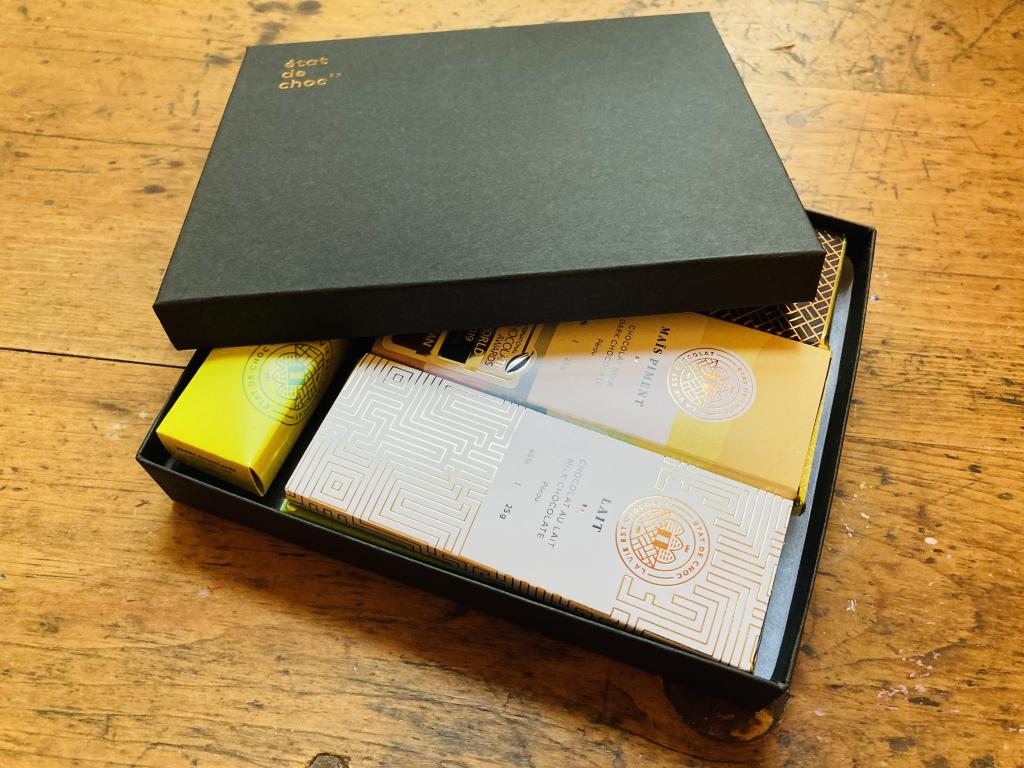
 I am
I am